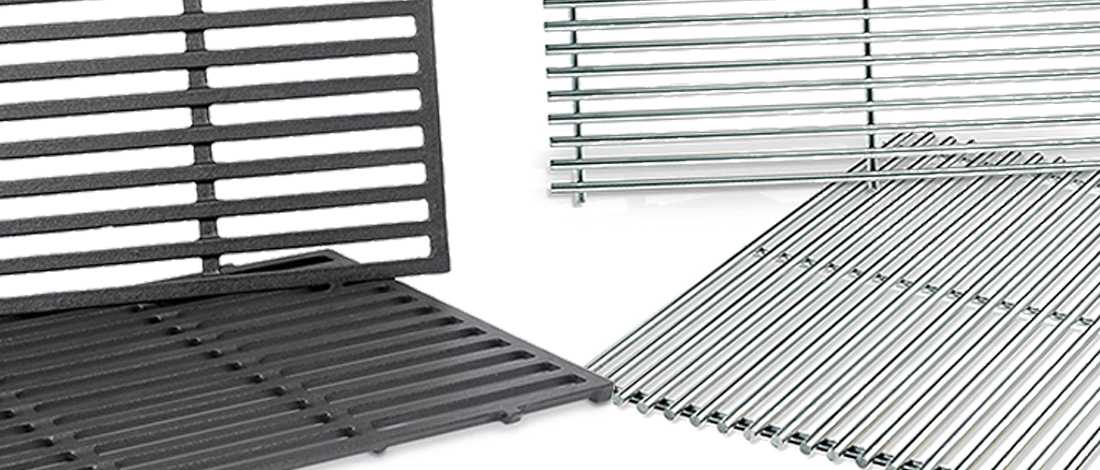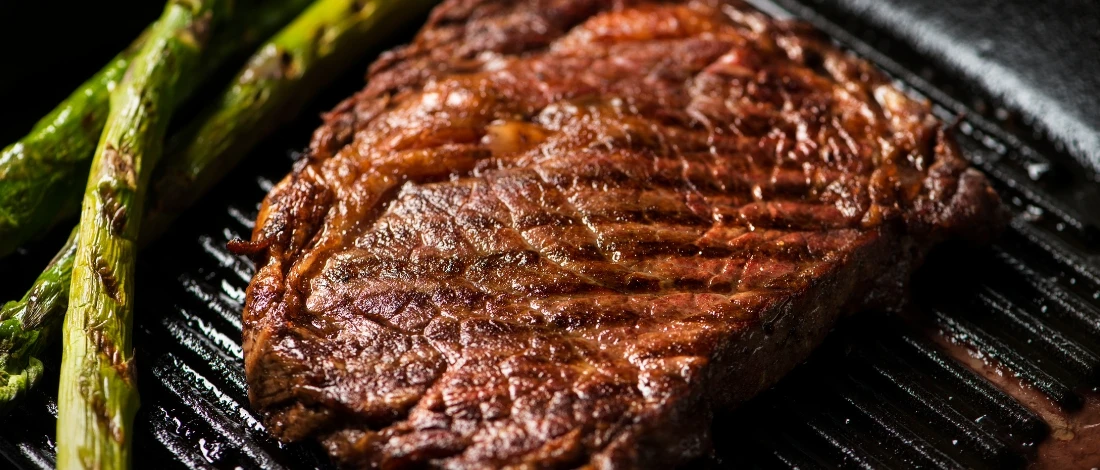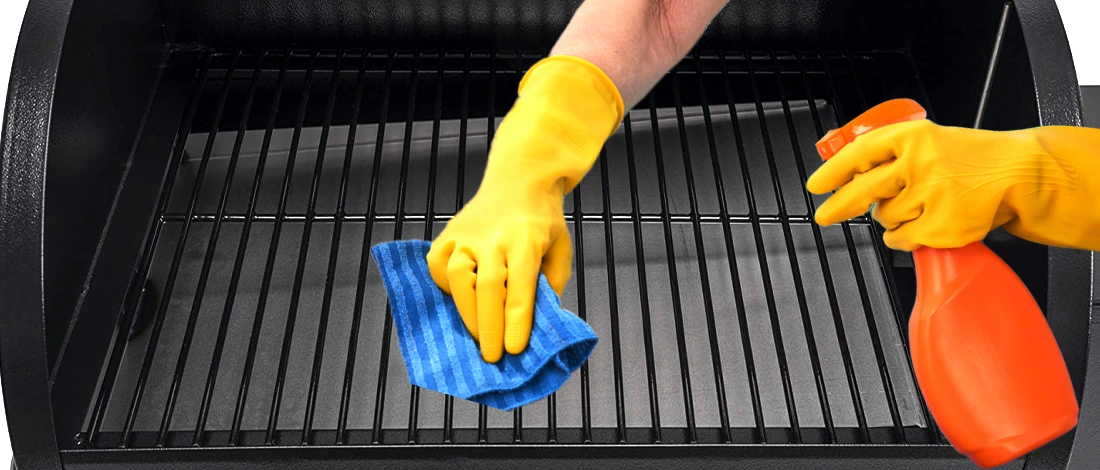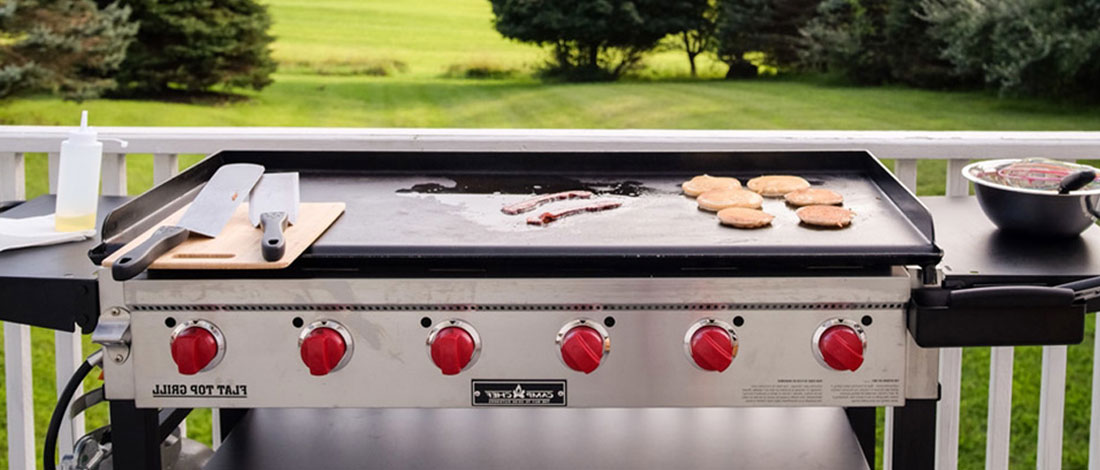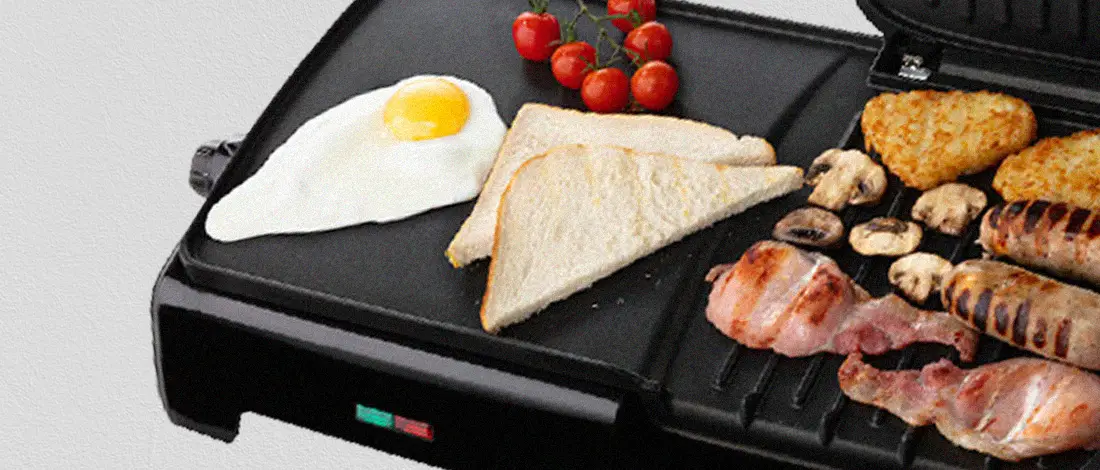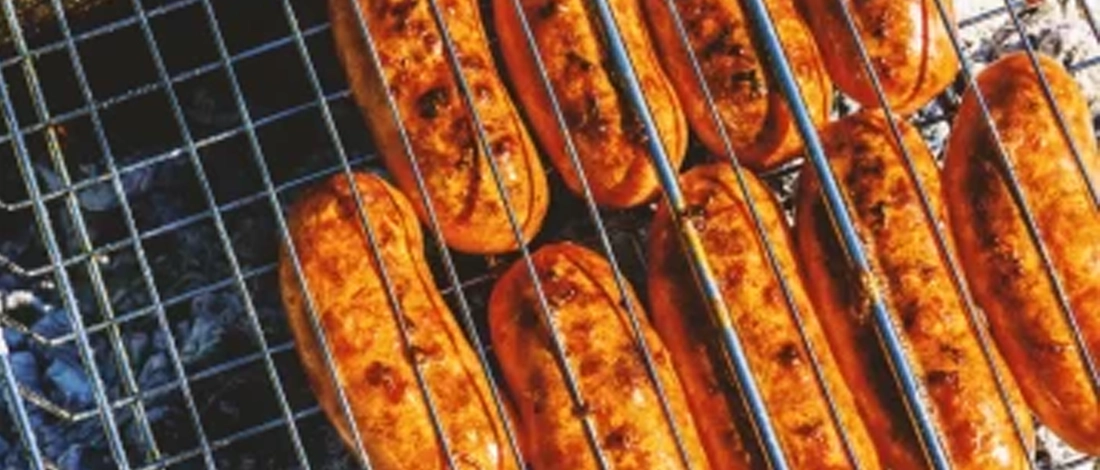Your family’s annual barbecue party is approaching, and you remembered that last year you just so ruthlessly “snuck” your unwashed cast iron grill grates into the basement.
Don’t worry - we were in this situation many times. Below are detailed instructions on how to clean cast iron grill grates, get rid of the remaining food and grease, and have them ready every time you want to grill delicious food.
Quick Summary
- To clean cast iron grill grates, the 4-step process includes heating the grates, using a soft brush with vinegar, washing with mild soap and water, and removing the smell and seasoning them.
- Various alternative methods are suggested, such as using baking soda, coffee, onion, or aluminum foil. These methods can help in degreasing and removing dirt and rust from the grates.
- According to a 2018 ACS Publications Chemistry Blog, baking soda is an efficient cleaning agent and can be used as a cleaning cast for iron grills by leveraging its chemical degradation and neutralizing properties [1].
- Proper care ensures that whether grill grates are made from stainless steel or cast iron remain functional and resistant to high temperatures.
4 Steps on How to Clean Cast Iron Grill Grates
Cleaning grill grates is not our favorite job, but we follow these simple steps after every barbecue.
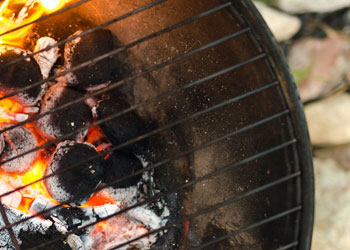
Step 1 - Heat the Cast Iron Grates.
To be able to clean grill grates easier, they should be warm. Heat them on the grill’s maximum temperature for around 15 minutes.
If you use gas, close the lid to allow the grill to become hot. The heat will soften leftovers, making them easier to remove.
Step 2 - Use Soft Brush.
Remove the grates and wait for the temperature of the grill grates to cool down so that you can hold them with your hands. Let the grates become completely dry.
Take a soft grill brush and start scrubbing the surface using white vinegar or some other products mentioned below. Be careful when selecting an ideal grill brush, as you should brush vertical strokes gently.
Recommended Article: Best Way to Clean a Grill Brush
Step 3 - Wash them With Mild Soap and Water.
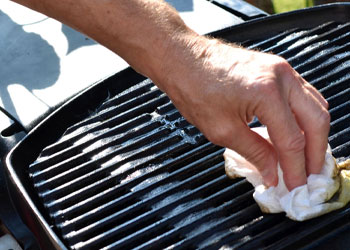
When the scrubbing is over, the best way to give them proper care is by using soap and warm water. Take a sponge, rinse soapy water, and rub gently.
Rinse well. This will remove products you have used to clean grill grates and the most delicate oil and dirt.
Step 4 – Remove the Smell and Season them.
Food preparation on the grill can create a specific smell. If, after washing your grill grates with soapy water, you still smell the putrid odor, put vegetable oil or lemon on a paper towel and pass it on every wire.
Oil is useful for seasoning, and it will create a non-stick surface.
When your cast iron grill gates get dry, cover them with something large enough to protect them from dust. Put them in a cool place, away from water, to prevent rusting.
What to Use to Clean Cast Iron Grill Grates
Vinegar Will Give Great Results.

Clean the grates with vinegar. According to a 2020 study published in the National Library of Medicine, a 10% acetic acid solution combined with 1.5% citric acid is effective in removing bacteria [2].
Vinegar helps with degreasing and does not contain harmful chemicals like an oven cleaner. Pour it into a spray bottle and spray the grates.
After 10 minutes, take a sponge or steel wool and scrub the grates. If you want even better results without much scrubbing:
- Put cast iron grates in the garbage bag and close it well.
- Leave overnight.
- Open the bag the next day (be careful as it smells) - all the dirt from the grill should be gone, and you should only wipe the cast iron grates off.
Baking Soda Ensures Easier Cleaning
Make a paste from a quarter cup of baking soda and a quarter cup of water. Apply a thin mixture with a wire brush on the grill and leave it for 15 minutes.
Rinse well. Then wipe the cast grates with a paper towel and place them over a hot grill for at least 15 minutes to burn any remaining paste or food.
Coffee Will Let Them Shine

Coffee has long been known as a good cleanser in the fight against fat. You need to do the following:
- Prepare a large coffee pot, pour it into a bowl in which you previously put the dirty grills.
- Soak them in coffee for an hour.
- Rub them lightly and wash with water.
Onion for Cleaning After Each Grilling
An old barbecue trick I learned from my grandma is to clean heated grills with onion. Peel an onion, cut it in half and use the cut side for cleaning the cast iron grate while holding the onion in your hand or on a barbecue fork.
This is a healthier way than oven cleaner, for example, because you don't use chemicals.
Scrub With Aluminum Foil
You can simply roll the foil into a ball and scrub the grates with it. You may also wrap the racks in aluminum foil and place them in a sink full of hot water.
Place two dishwashing tablets on the foil. Leave it to stand for an hour, and then just go over with a sponge, and the dirt and rust will be removed.
“Grilling is an easy tradition to start at any age. “
- Barton Seaver, Chef
Related Articles:
Tips for Maintaining Cast Iron Grill Grates

Protect Them From Rust
One of the enemies of the grates is rust and moist. It can be a marinade, which we use while cooking or grease in the storage. Moisture can attack even the best-protected grills.
According to research on Academia EDU moisture is one of the main reasons that create rust [3]. To remove rust, use steel wool and soap. Then, heat the oven and put the grates one by one to dry.
Season The Grates
Season grates to keep them in good condition as long as possible. When seasoning a grill, you need to apply oil to create a non-stick surface. This will also prevent moisture and rust [4].
Recommended Article: How to Season a Charcoal Grill in 10 Simple Steps?
References:
- https://axial.acs.org/cross-disciplinary-concepts/the-science-of-baking-soda
- https://www.ncbi.nlm.nih.gov/pmc/articles/PMC7447605/
- https://www.academia.edu/5623396/Rusting_of_Iron
- https://www.paintersusainc.com/news/3-reasons-rust-and-corrosion-must-be-removed-from-your-food-production


